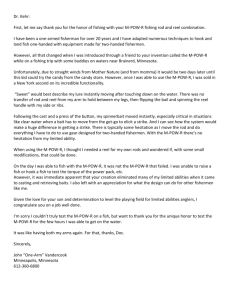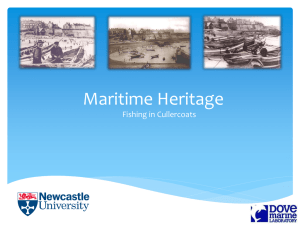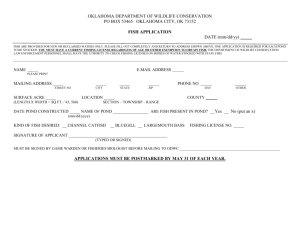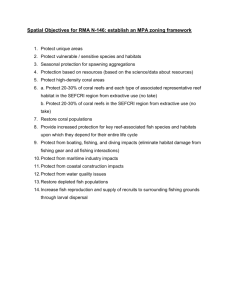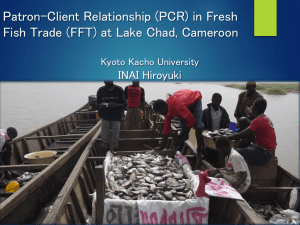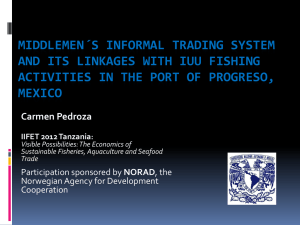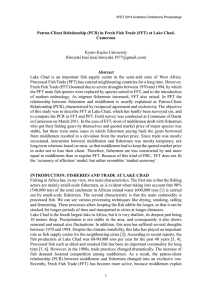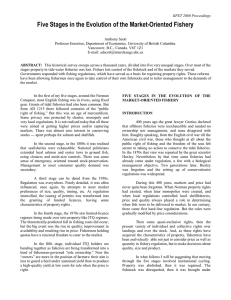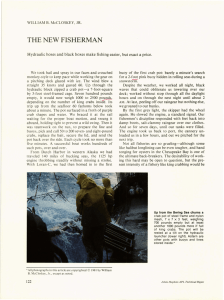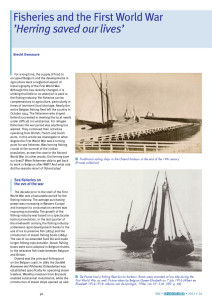Living on fishing: collective memories from the fishing communities
advertisement
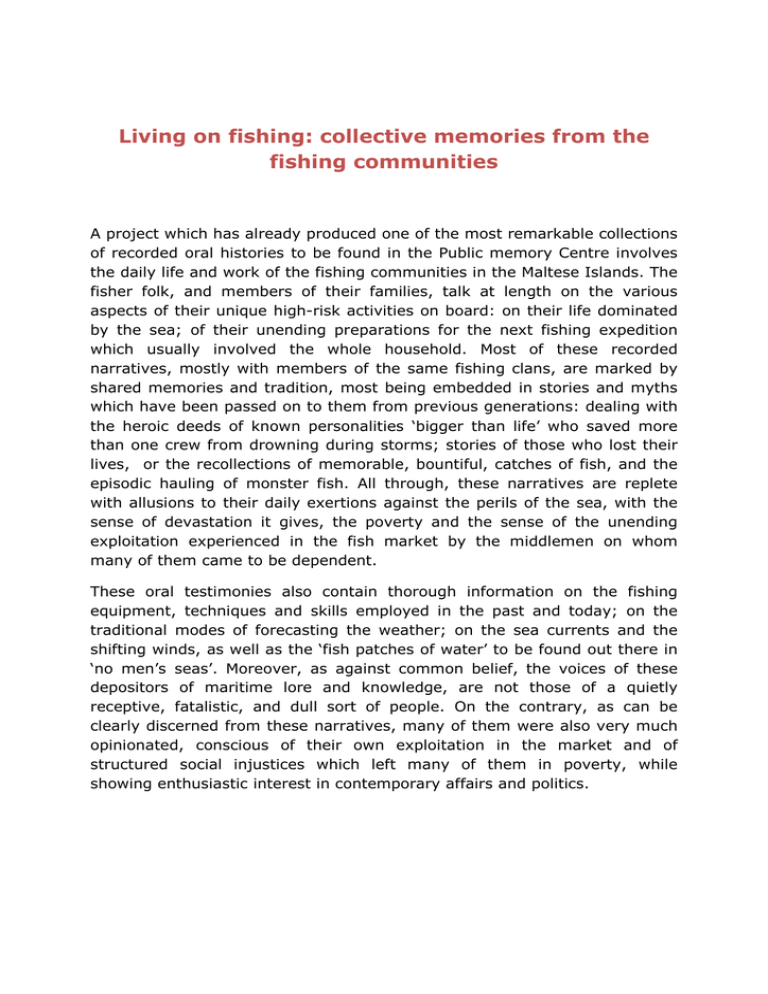
Living on fishing: collective memories from the fishing communities A project which has already produced one of the most remarkable collections of recorded oral histories to be found in the Public memory Centre involves the daily life and work of the fishing communities in the Maltese Islands. The fisher folk, and members of their families, talk at length on the various aspects of their unique high-risk activities on board: on their life dominated by the sea; of their unending preparations for the next fishing expedition which usually involved the whole household. Most of these recorded narratives, mostly with members of the same fishing clans, are marked by shared memories and tradition, most being embedded in stories and myths which have been passed on to them from previous generations: dealing with the heroic deeds of known personalities ‘bigger than life’ who saved more than one crew from drowning during storms; stories of those who lost their lives, or the recollections of memorable, bountiful, catches of fish, and the episodic hauling of monster fish. All through, these narratives are replete with allusions to their daily exertions against the perils of the sea, with the sense of devastation it gives, the poverty and the sense of the unending exploitation experienced in the fish market by the middlemen on whom many of them came to be dependent. These oral testimonies also contain thorough information on the fishing equipment, techniques and skills employed in the past and today; on the traditional modes of forecasting the weather; on the sea currents and the shifting winds, as well as the ‘fish patches of water’ to be found out there in ‘no men’s seas’. Moreover, as against common belief, the voices of these depositors of maritime lore and knowledge, are not those of a quietly receptive, fatalistic, and dull sort of people. On the contrary, as can be clearly discerned from these narratives, many of them were also very much opinionated, conscious of their own exploitation in the market and of structured social injustices which left many of them in poverty, while showing enthusiastic interest in contemporary affairs and politics. John Degabriele: ‘My mother has always been a working women…a fisher…. She made and then fished with, her own hand nets, small hand nets to catch shrimps. I remember her. Sometimes I went on the boat, rowing her in specific waters, sometimes using konz [a floating fishing equipment with hooks] . What she caught she would then throw into a bucket. The shrimps … she would put these into what was called fishers’ jar, until it was already getting dark and we would go for tea in the evening […] We always lived on the sea, on what we caught …catching shrimps or sometimes picking sea food, and fish especially lampuki during its season. As a child I did not like going to school. How ignorant and bigoted they left us ! They left us very much behind the others.. they used to frighten us with goblins, don’t go there because there are ghosts…and such things as this…I tell you they left us in blindness ! This was [a long time] ago and these are matters that me and others of the same age have passed from. Fishing was the only means of living available for our families. Sometimes, however, you really had to look for a bit of bread brother, my son, in order to survive. How many times I cried ! to say that I cried for a piece of bread like this… the size of a mid quarter. Not the first time that I went in the rubbish dump [****] to find a scrap to eat… in the rubbish I tell you….and now you are going to laugh at this! Today everyone is, let’s say, wealthy, but what exactly am I saying? … those who are as old as me know it. Then there was the middlemen at the pixkerija [the fish-market]. There all exchanges were done by whispering in the ears. They used to say “two pieces of twenty pence or four pieces of twenty pence”, I was not used to understand them. Then they told you to lower the asking price… The fish market was like that… it used to be situated near the tunnel at the southern end of Valletta, not like nowadays. This was a long time ago you know ! That time …there was a lot of poverty. When I used to go there … sometimes … I went near the fruit stalls and ask for an orange to eat…there was hunger my son ! In the pixkerija fish was always auctioned in that way, as I said, prices always whispered in the ears ! It was only later that they changed the system...The priests, I am going to tell you as I am not afraid to tell you, the priests, the clergy, they left us in total ignorance. Always telling us about God and the saints but never really helped us ! And when we were fishing on the high sea, we had to give our share or at least a quarter of it for the church. What could you do at that time…I mean that we always gave them but they never gave us anything ! not even a piece of bread. Do you understand ? The priest would come and give you a holy picture and he will tell you that God will help you !!! I didn’t want that kind of help ! Am speaking the truth … that was our life. As fishermen, on the sea, we used to calculate and forecast the weather. When I met you here I told you that tomorrow we will have wind blowing from the south.. see?...This is because I was thought how to read the elements of nature. Now when the sea is ‘empty’ like today till March…when the sea, the sea parts… it will draw the air with it [makes a sign with his hands of something being pulled] it will affect everything. And the moon, for me, the moon in this place, commands everything… so from each of its quarters you will know what’s going to happen…what the moon does it affects everything’. Joseph Callus: ‘The pixkerija system was worked by the middlemen. In those days it was about half past four … that is before we started changing to summer time… that most business was already done there. I will tell you: in those days, during the lampuki season, the middleman used to sleep at the fish market. This was done so that he would be the first to get to the fishermen who entered the market very early with their catches. Fishermen would start coming in at about midnight or at one in the morning – they found a middleman to be able to unload their catches in the place and put them in the rooms available … the middlemen would then weigh the lot of fish in the morning … in rotoli … this is how it was done. And the fishermen would go out with little in their pockets.’
